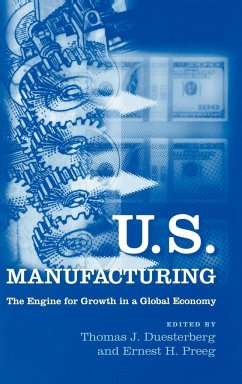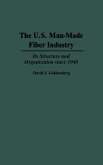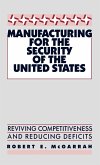Evolving rapidly from a mass-produced product orientation to a flexible, solutions-oriented model, the changing manufacturing sector is poised to lead a global economic recovery. Truly an insider's guide to the future of this critical sector, this book provides policy recommendations based on a wealth of information. Despite the appearance of difficult economic times for U.S. manufacturing, that sector of the American economy is actually the most innovative and competitive in the world. Far from being confined to the tired stereotype of Industrial Age commodities, such as steel and mass-produced consumer products, U.S. manufacturing has long been an engine for growth. In the 1990s, this central role was strengthened as new technology development and application spurred higher levels of growth throughout the economy. In its present configuration, manufacturing includes such high-tech industries as fiberoptics and microchips. Globalization has accelerated the growth of the manufacturing sector by increasing competitive pressures to cut costs and develop new products faster, spreading out the fixed costs of R&D and investment. Truly an insider's guide to the future of this critical sector, this book provides policy recommendations based on a wealth of information. Evolving rapidly from a mass-produced product orientation to a flexible, solutions-oriented model, the changing manufacturing sector is poised to lead a global economic recovery. But it can do so only if the right policies are in place in the United States. To that end, the editors of this volume recommend fiscal and tort reform, higher educational achievement, and continued deregulation. At the international level, further trade liberalization and steps to reduce the trade deficit are recommended to ensure the staying power of U.S. competitiveness, particularly for technology-intensive industries.
Hinweis: Dieser Artikel kann nur an eine deutsche Lieferadresse ausgeliefert werden.
Hinweis: Dieser Artikel kann nur an eine deutsche Lieferadresse ausgeliefert werden.








